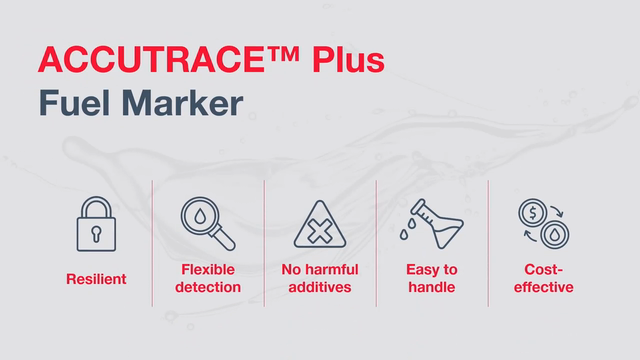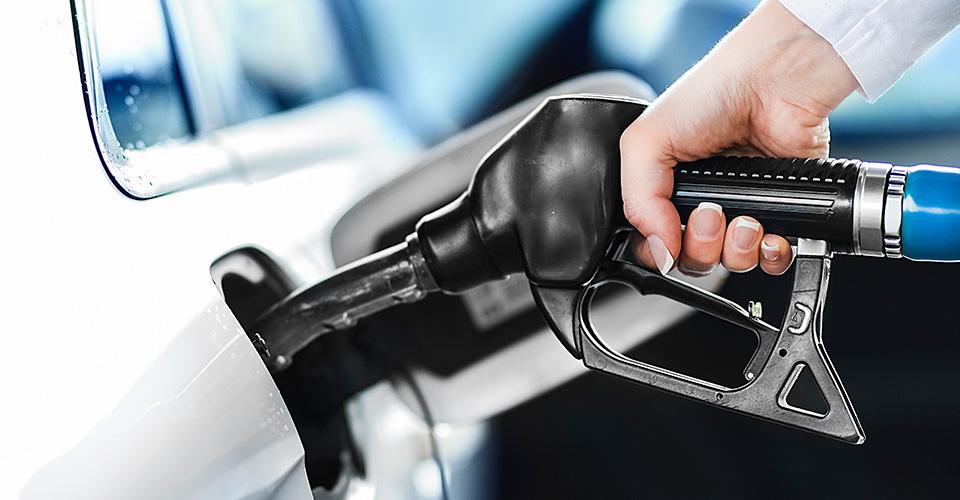Safeguarding Fuel Integrity in the European Union
Fuel fraud is a major global challenge today, negatively impacting governments, citizens, and consumers. Fuel laundering, a type of fuel fraud, is the criminal act of removing government fuel markers that are in fuels allocated for lower-taxed essential uses, such as agriculture and home heating, and selling them for higher taxed uses such as automotive to avoid taxes that generate necessary revenue for governments.
In the European Union (EU), fuel fraud costs governments 7 to 10 billion EUR in tax losses each year* - money that would otherwise be spent on public services. For consumers, fuel fraud means that petrol products are adulterated, leading to low quality fuels that may leave harmful deposits in car engines which can damages them to the extent of breakdown.
Fuel fraud also has consequences for the environment. It causes environmental pollution due to the use of chemicals to attempt to separate the marker from the fuel and the illegal dumpling of the toxic waste products from this process.
*Source: Ecorys (2019): Study on the estimated economic implications of fuel laundering & wider fuel fraud in the EU
BUSINESS CHALLENGE
Seeking a more robust fuel marker for the EU
Some markers, including the incumbent Euromarker, are not completely resistant to fraud and criminals quickly develop new methods for removing them.
Fuel marking is an efficient way to enforce the law and detect cases where rebated fuels are being used fraudulently. Since 1995, the European Union (EU) has required Member States to use a common marker, or ‘Euromarker’, in energy products that are most at risk of fuel fraud, such as diesel and kerosene.
Unfortunately, many of the fuel markers on the market contain harmful additives which have negative impacts on the performance and emissions of car engines or even on the health of the officials handling them.
Additionally, some markers, including the incumbent Euromarker, are not completely resistant to laundering and criminals quickly develop new methods for removing them. To combat these issues and leverage the latest scientific developments and product innovations, the European Commission periodically initiates a review process to validate the performance of the existing Euromarker and to find a new and more effective Euromarker.
SOLUTION
Reducing fuel fraud to increase access to more affordable and cleaner energy
Not only is it highly robust and resistant to common removal methods, ACCUTRACE™ Plus is also more cost effective, easier to handle, can be detected either in a lab or in the field, and does not contain any harmful additives.
In January 2022, Dow’s ACCUTRACE™ Plus Fuel Marker was chosen by the European Commission as the new common fiscal marker for the European Union after outperforming the four shortlisted candidates in technical evaluations and safety assessments including the incumbent Euromarker.
Not only is it highly robust and resistant to common removal methods, ACCUTRACE™ Plus Fuel Marker is also more cost effective, easier to handle, can be detected either in a lab or in the field, and does not contain any harmful additives.
In fact, ACCUTRACE™ S10, another of Dow’s molecular fuel marker, already has a proven track record. It has been used for years by governments including the United Kingdom and Republic of Ireland. Since its introduction there in 2015, it has effectively helped to reduce the occurrence of fuel laundering.
At Dow, we are committed to the continued improvement of fuel marking technology. Our range of ACCUTRACE™ forensic fuel markers are helping governments achieve revenue protection and reduce crime and pollution and offer oil companies brand ID protection.
While it may seem like a victimless crime, fuel theft has negative consequences, not just for governments, but for citizens and the environment as well. With ACCUTRACE™ Plus Fuel Marker and through greater Member State collaboration, we hope that the European Union sees significant reductions in fuel fraud and as a result, better access to affordable, reliable, and cleaner energy for Europeans.



